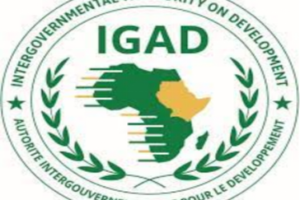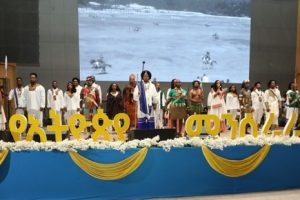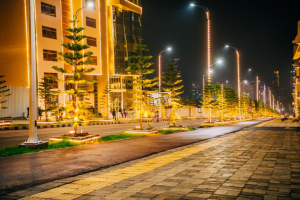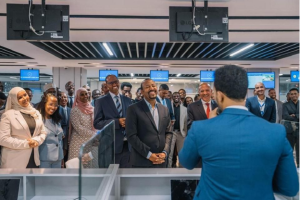
The 35th African Union yearly summit was held in Addis Ababa from February 2 to 6, 2022 in a successful manner. This year’s summit is a unique one as it was carried out under very special circumstances primarily in Ethiopia, the host country and subsequently in Africa and the world at large. First of all, it is the first one that was held in person, physically as the world has been battered by the COVID 19 pandemic that prevented such assemblies.
Ethiopia has been involved in a campaign of trying to keep law and order in one of its regional states in the north due to the controversy with the former ruling party of TPLF. Besides, it was clearly supported by certain groups, forces and countries who tried to interfere in its internal affairs. It is sad that things had to reach such levels but the Ethiopian government had to defend itself.
Since November 2020 when the Ethiopian Northern Command was brutally attacked by the TPLF forces Ethiopia was involved in defending its integrity and sovereignty. For more than a year this state of war continued in the country and it monopolized the country’s resources in many senses. Throughout this tremendous campaign it was clear that TPLF did not act alone. It definitely had forces behind it and this was proved later on. There was enough evidence that the involvement of such forces such as some of the UN Staff and foreign media did affect the campaign.
Ethiopia was however clear in its stance that the situation was one of internal matter and that all it could do was be open to any constructive engagement with any of the above forces. However, despite all efforts, Ethiopia became a victim of the threats of sanctions and unfounded condemnations based on the rhetoric of TPLF forces who in fact were never condemned for having ignited the war.
The international community which was involved in this crisis did know about what exactly caused the conflict and it was clear that their presumed intention was to somehow achieve a ‘change of government’ in Addis Ababa. But the Ethiopian government was one that was elected by the people in what was defined as the freest and fairest election in its history and because of this it had the mandate, support and trust of the people. That is what eventually resulted in the kind of reaction the government received from the calls it made to the people.
The bias of the international media and several western nations was clearly evident from the way they reported developments in Ethiopia. Ethiopians saw how one sided these media were breaking every rule of professional media. They exaggerated every supposed advance of the TPLF troops and continued to report doomsday scenario in Addis. They thus tried to create panic among the expatriates and invited them all to leave. But it was clear that they were preparing the ground work for an eventual intervention in Ethiopia alleging humanitarian factors. Fortunately for Ethiopians this did not materialize.
In a series of counter attacks the Ethiopian troops led by the commander in chief of the armed forces, the prime minister, registered the most incredible of victories. In a few weeks of heavy engagement and mobilization they dismissed totally the claims and prophesy of the propaganda wing of TPLF aired extensively by the western media. Africans as well were alarmed by the reports of these media because Ethiopia is considered as one of the most stable nations in Africa, and besides the seat of the continental body.
Unfortunately, the destructive propaganda did gather some credibility for some time because some of the media that reported developments in Ethiopia were considered reputable. But later on the facts on the ground and Ethiopia’s response to the advances of TPLF proved them not only baseless but also politically motivated. Their ‘hybrid war’ apparently supported by their governments back home did not bear the fruits they had anticipated.
Furthermore, Ethiopians all across the world opposed emphatically to the campaign that these governments and media mounted through the #NoMore movement that went viral immediately. Huge rallies were held in most of the world’s capital cities with Ethiopian diaspora and their friends and the messages were well conveyed. All the talk of abandoning Ethiopia and the fall of the government was to prove false and invented.
In the meantime, when all these developments were recorded there were forces that were working clandestinely against the holding of the AU summit in Addis Ababa. But the fact that thousands of Ethiopian diaspora came to their homeland to show to the world that there were no dangers of security and safety in the country and the fact that millions of people celebrated Christmas and ‘Timket’ (Epiphany) in its usual colorful and traditional manner peacefully blew up the various invented stories of lack of security as baseless.
In fact, it was reported that never in the history of this agency has a country such as Ethiopia been a motive of so many urgent meetings in such short time alleging various factors. The veto power of China and Russia was here key along with the support of several countries such as India, Turkey and African countries who always considered the conflict in the north as an internal issue to be settled internally and that at best the AU would take care of it if it needed external intervention. The principle that has been invoked was ‘African solutions to African problems’ and there was no need of the ‘paternalism’ of Western forces.
Several African scholars and prominent personalities supported the efforts of Ethiopia and condemned the attempts by western media to destabilize Ethiopia and make it appear a house of cards! Many Africans shouted out that Ethiopia’s fight was also Africa’s fight and attacking Ethiopia was attacking the entire continent, also because Ethiopia is considered by many as the ‘mother of Africa’ and a key country in the African Union.
It was against all this background that the 35th AU summit was scheduled to be held in Addis Ababa and this must have sounded a huge set back to these forces that used to report doomsday scenario for Ethiopia. But African leaders did not submit to the attempted pressure. They decided that they would personally attend the summit and convey a clear and unequivocal message to the entire world.
The situation was even clearer when we saw how the same international media reported the AU Summit. Those media outlets who were always active in disseminating false narratives against Ethiopia and Africa in general were now completely absent in their reporting because there was nothing negative they could report. The sensationalism and all the ‘expert analysis’ they were offering us about Ethiopia breaking apart and their inevitable intervention to defend their interests did not materialize the fruits they hoped to achieve. That was why they barely report success stories in Africa. It is to be remembered that the same treatment was given to the Ethiopian successful elections held in June 2021.
It was a shame that with so many heads of state and government attending the AU summit for two days these media preferred to ignore it. Those who felt they had to report it limited their reports to scant reference to the summit. If there was some security problem they would definitely have given it all the time they had to report on it as they usually do when coups are reported in any location in Africa. We remember how they reported the coup in Burkina Faso and earlier in Mali, Guinea and Sudan but when the African heads of state meet to discuss among others these negative developments in an attempt to resolve them, there is a black out. Hence, it is clear that they are doing more of political missions for their respective governments rather than bother about fair and balanced reporting. Their motto seems to report all negative developments in Africa but no light on victories and positive stories!
That is why at the just ended AU summit consistent voices were recommending to found a huge African media outlet that can report its own stories. This outlet would report on Africa matters the way it wants and not rely on so called international media working for their countries’ interests against the interests of Africa. What is more, seeing that the voice of Africans is not even represented at the UN Security Council which always deliberates on it without listening to its voices, there is now increasing demand for African voices to be represented at all UN hierarchies in a logical and fair manner.
The days of the colonial mentality must be rubbed off and Africa must be allowed to state its needs and aspirations and not always be victim of under representation submitting to the decisions passed against it. The recent crisis in Ethiopia has glaringly shown to Africans what their fate is if they challenge the hegemony of the west in Africa. It shows how the West has not yet accepted the independence of Africans and still relies on treasonous African leaders or groups to hold on to their influence. In fact this is a demonstration that Africa is not yet free to decide on its own destiny and the influence of former colonial masters is still preponderant. Fortunately, the AU has now realized this reality and began to react. That is why we say the 35th AU Summit is historic in many ways and has helped Africa wake up of its perennial slumber!
BY FITSUM GETACHEW
THE ETHIOPIAN HERALD THURSDAY 10 FEBRUARY 2022





